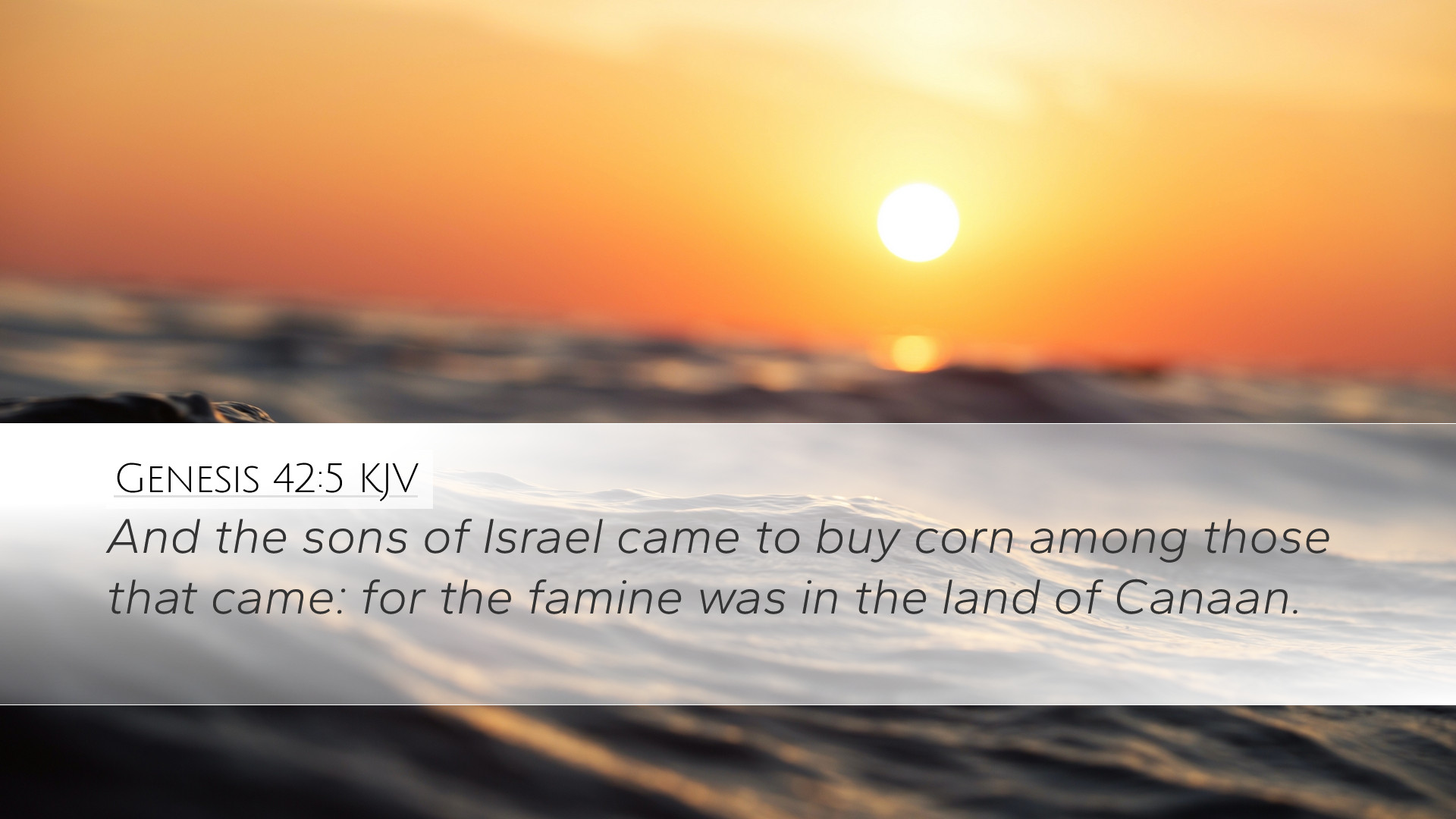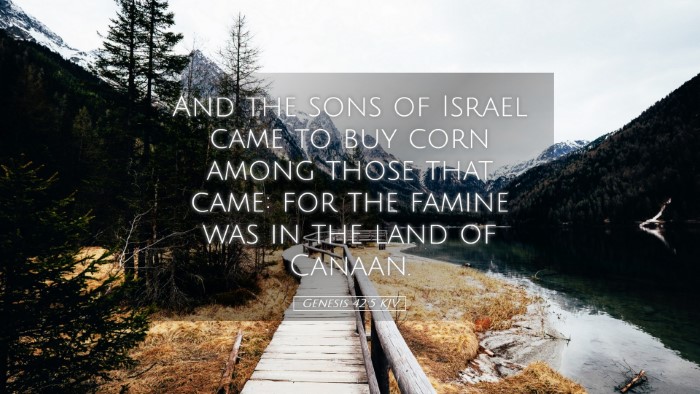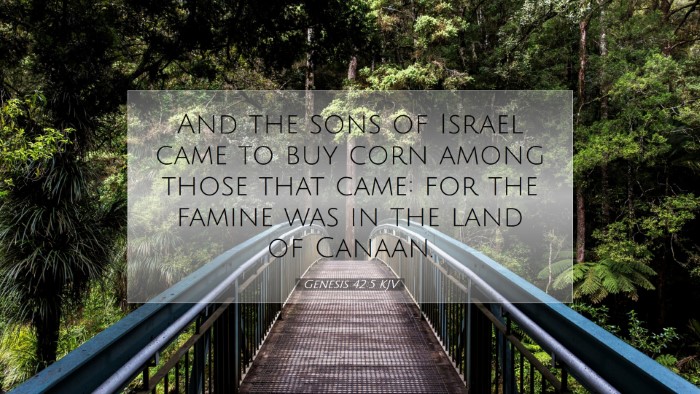Commentary on Genesis 42:5
Genesis 42:5 states: "And the sons of Israel came to buy corn among those that came: for the famine was in the land of Canaan."
Contextual Background
The narrative in Genesis 42 is pivotal in the story of Joseph. The famine that strikes the land of Canaan compels the sons of Jacob to travel to Egypt in search of sustenance. This famine acts as a catalyst for reconciling Joseph with his family, which provides deeper theological implications about God's providence and the fulfillment of His promises.
The Famine in Canaan
Historical Context: The famine mentioned is a significant event in the biblical narrative. Scholars suggest it may relate to an actual historical drought that led to severe food shortages in the region.
Theological Implications: The famine serves as a backdrop for demonstrating God's control over earthly events, as it sets the stage for Joseph's rise to power and the eventual preservation of his family.
Commentary Insights
Matthew Henry: Henry emphasizes the providential hand of God in leading Jacob’s sons to Egypt. The famine was not just a physical hardship but a divine means of orchestrating events that would reveal Joseph's identity and lead to reconciliation within the family. Jacob’s sons are depicted as acting out of necessity, highlighting their desperation and the severity of their situation.
Albert Barnes: Barnes elaborates on the implications of the famine affecting Canaan. In his commentary, he points out that the need to travel to Egypt signifies not only the physical journey of doing whatever is necessary for survival but also reflects a deeper spiritual journey. The brothers' initial ignorance of Joseph's status in Egypt also speaks to the broader theme of hidden truths and the unfolding of God's plans.
Adam Clarke: Clarke provides insightful analysis on the sociocultural context of the time. He notes how the famine brought nations together, creating opportunities for trade and interaction. This situation reveals the interconnectedness of God’s creation and how human actions, driven by necessity, often play a part in divine orchestration. Clarke also reflects on the familial dynamics at this moment, emphasizing the psychological aspects of Jacob's sons facing the consequences of their past actions against Joseph.
Thematic Elements
- Divine Providence: The verse exemplifies God’s sovereignty over historical events. The unfolding events illustrate how God uses dire circumstances to bring about greater purposes.
- Human Need: The desperation of Jacob’s sons highlights human vulnerability. Their willingness to seek help from Egypt emphasizes the universal need for support in times of crisis.
- Reconciliation: This journey to Egypt becomes a critical path toward reconciliation within the family, paving the way for forgiveness and unity.
- Faith and Trust: The verse implicitly raises questions of faith amidst trials. The actions of Jacob and his sons showcase a complex interaction of fear, faith, and hope in God’s provision.
Conclusion
Genesis 42:5 serves as a crucial point within the narrative arc of Joseph and his brothers. The verse encapsulates key theological themes such as divine providence, human need, and the journey toward reconciliation. For pastors and theologians, this verse invites deep reflection on God’s intricate plans, the necessity of humility in times of want, and the hope found in reconciliation. The historical and spiritual implications of their journey resonate with contemporary believers, encouraging them to trust in God’s guidance through their own trials.


